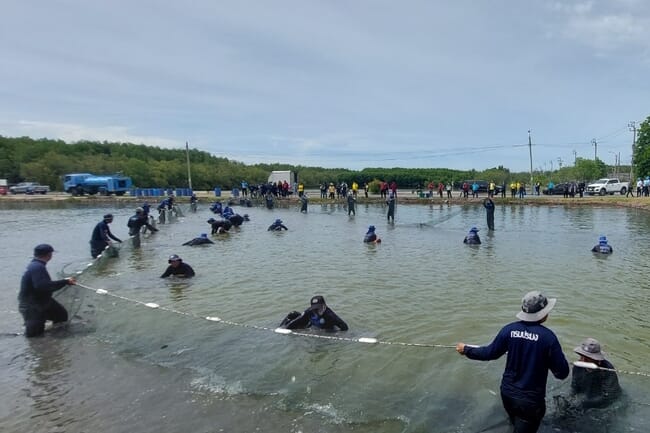
© Charoen Pokphand Foods
Despite tilapia being one of the most widely farmed fish in the global aquaculture industry, invasive populations of the blackchin tilapia - a cichlid native to West Africa - have been devastating the productivity of aquaculture operations throughout Thailand. However, a multi-stakeholder effort led by the country's Department of Fisheries has reported progress towards controlling this invasive species, turning an environmental challenge into a pathway for sustainable development and local economic growth.
Forming part of a five-point government strategy to address the ecological challenges posed by invasive species, the Department of Fisheries has developed a specially engineered strain known as Blackchin Tilapia 4n - a genetically modified variant designed to inhibit reproduction. The experimental strain has been released at experimental sites this month to evaluate its effectiveness in reducing the invasive fish population.
Simultaneously, another project is specifically geared towards assisting aquaculture producers. The Seabass Fund for Farmers assists farmers in reducing costs by introducing natural predators into aquaculture ponds, effectively managing the blackchin tilapia population. This programme was established by the Phetchaburi Provincial Fisheries Office to support small-scale farmers with revolving funds for purchasing seabass fingerlings, providing a sustainable solution for shrimp, fish, and crab farmers operating in semi-natural systems to control and reduce populations of the invasive cichlid.
In addition to direct eradication efforts, the promotion of blackchin tilapia products, such as foods and feeds, is being used to encourage consumption of the fish, driving local economic growth. These initiatives have been implemented by Charoen Pokphand Foods throughout 2024, including the purchase of 2 million kilograms of Blackchin tilapia for fishmeal production. Charoen Pokphand has also extended assistance to fishing activities aimed at blackchin tilapia removal by supplying fishing equipment and necessary materials to participants.
If successful, these programmes for the control of blackchin tilapia populations in Thailand could serve as a model for governmental and private-sector cooperation for environmental solutions and local economic development.




